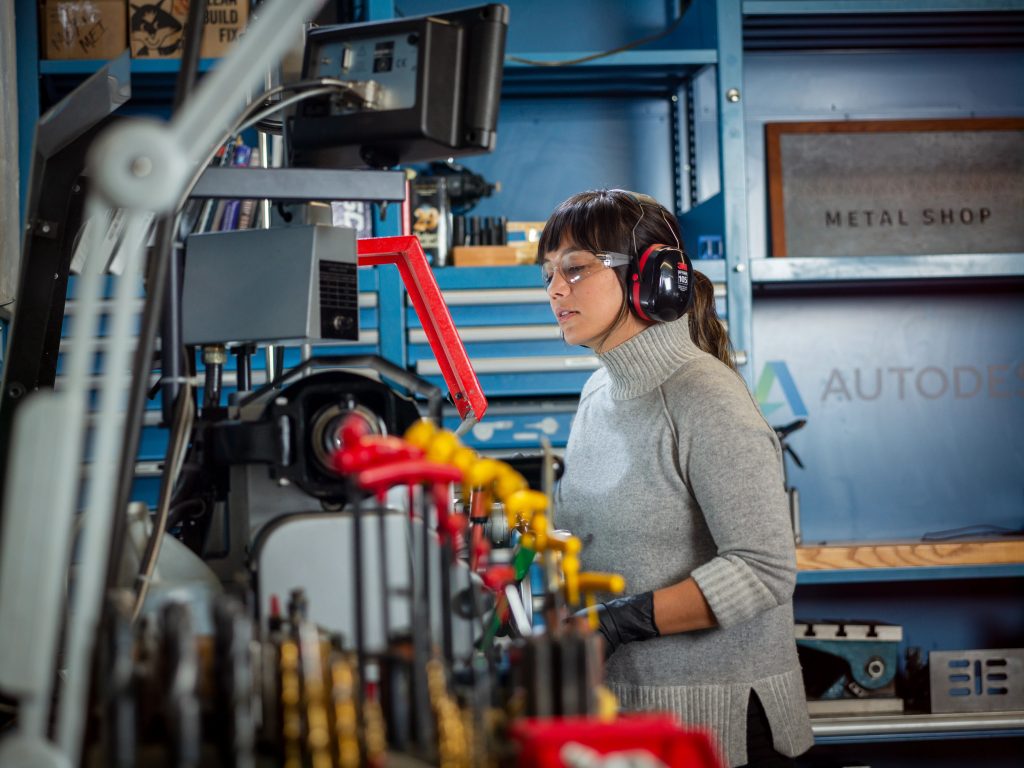By Jaime Perkins

As the economy recovers from the mass disruption caused by the pandemic, all eyes are on what’s been termed ‘the Great Resignation’, with nearly one in four UK workers planning to change jobs. Many workers, both the underemployed and those waiting to return to work, are looking for better, safer, and higher paying jobs. We’re also seeing companies in industries like manufacturing and construction urgently seek more employees with skills that align with roles that are rapidly changing due to automation. And this isn’t a phenomenon unique to the UK.
Over the last 20 months, the disruption caused by the emergence of new technology in the workplace has come into sharper focus. Businesses have digitally transformed at an unprecedented rate during the COVID-19 pandemic. This transformation has made the reskilling and upskilling of workers even more important to ensure they can thrive as the workplace changes around them.
We wanted to better understand how these changes have impacted the jobs landscape within specific industries and commissioned a Future of Work report by Emsi Burning Glass. Today we are publishing the findings of this research (link to come) and I’ll be sharing a few important takeaways.
“Skilled Beyond Degree: How Experience Is Outpacing Education in Construction and Manufacturing Hiring” is a study of the jobs, skills, and education that are most in demand in construction and manufacturing. With an eye toward the workplaces of both today and tomorrow, the report looked at job postings in the United Kingdom, United States, and Germany for the entirety of 2020.
Takeaway #1 – Continuous learning is key
What struck me most about the research, was that it revealed a shift away from jobs requiring a bachelor’s degree to jobs with no explicit education requirement. At Autodesk we view university as an imperative for many learners, but these findings place more emphasis on skills and experience when it comes to matching qualified talent with new roles.
In 2020 82% of job postings in construction and manufacturing didn’t require formal education in the UK. These findings echo what I’ve been seeing and hearing in both industry and academia for years. The speed with which the workplace is evolving to include new technologies, workflows, and processes means job qualifications and the ways we learn must also adapt.
For many roles in construction and manufacturing, hiring managers are looking for candidates who can prove mastery in specific skills. And as these industries evolve, continuous learning through credentialing and certification programs and on-the-job training will remain paramount for showing job-readiness and future-proofing CVs.
Rachel Sederberg, Senior Economist, Emsi Burning Glass, drove the study and shared some of her reactions to the findings. “This report shows that training future workers, upskilling current workers, and identifying how skills can bring stability to those at risk of disruption from new technologies offers a trifecta of opportunities for those in construction and manufacturing. All three of the geographies highlighted the rising importance of skills, suggesting businesses are beginning to recognise that experience and competency are more critical than a formal education when it comes to finding the right talent to carry their business forward.

Takeaway #2 – The impact of automation
The automation of tasks in the workplace has been one widespread by-product of the digital transformation businesses are going through. As technology evolves and industries transform, we can expect both new job creation and the adaptation of current roles.
While at Autodesk we see the benefits automation can have on jobs by making them safer and less mundane, we recognise that the introduction of new technology in the workplace has historically caused concern about job displacement. This report was designed to help us better understand how some workers are approaching reskilling and upskilling to help them capitalise on the opportunities automation creates, while also exploring the type of new roles that might be available for workers impacted.
The research pointed to the fact that workers can leverage the skills they already possess to pivot to new roles that are both lucrative – and less susceptible to automation – through informal skills development and education initiatives.
Rachel shared some more interesting context. She added, “someone who is at high risk of some or all of their job being automated is a Quality Inspector/Technician. These workers can leverage their existing skills to transition to a Production Supervisor role by learning only a handful of new skills. This metamorphosis will both insulate them from the risk of automation and increase their salary.”
Takeaway #3 – Skills and roles on the rise
The research also showed trends for the types of roles and specific skills that will be coveted most in the near future. Additional findings include:
- Despite the shift away from degree qualifications, there remains a demand for sophisticated technical and non-technical skills. Data and management skills featured prominently in job postings, indicating that construction and manufacturing continue to face complex challenges that they are looking to qualified talent to solve.
- Logistics and supply chain management were brought to the forefront of public awareness during the global COVID-19 pandemic, and their importance is projected to continue in years to come.
- Renewable energy related roles in manufacturing are some of those poised for the greatest growth in the next five years, emphasising the need for adaptation to new methods and new technology.
As roles, disciplines, and industries converge, we’re seeing that selecting a specific field of study or a degree is less important than committing to a lifelong-learner mindset. We believe employees prosper by adopting a mindset of continuous learning, acquiring the most in-demand skills, and securing the most fulfilling roles.
Head here for more on how Autodesk is committed to helping our customers, communities, and employees thrive in the era of automation.
A second report from Emsi Burning Glass looking at the state of skills and jobs in the Asia-Pacific Region will be released in late 2021.

(0)